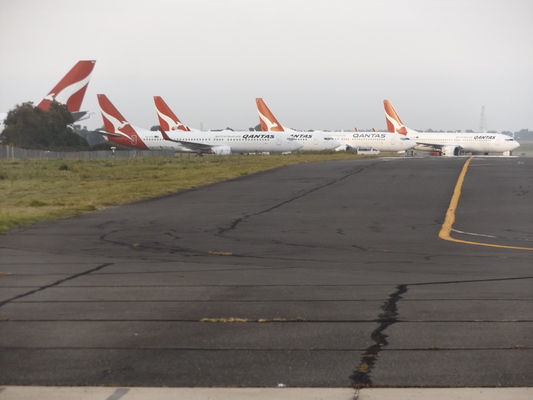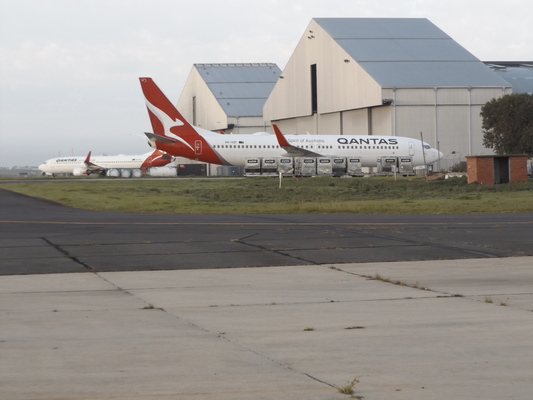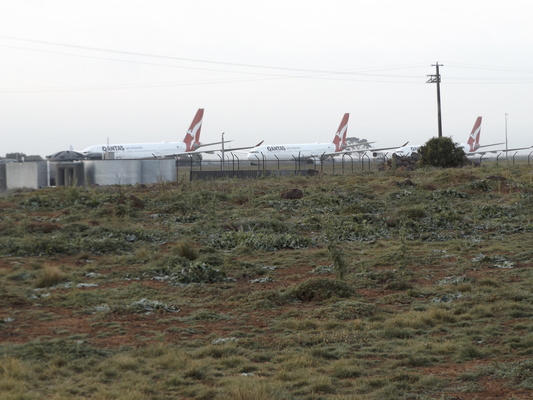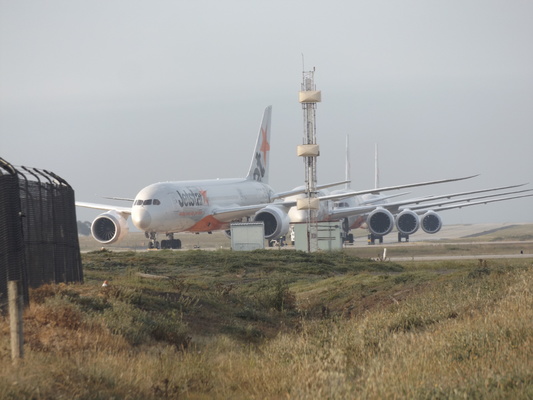Avalon Airport has become the new home for about 30 passenger planes during the coronavirus pandemic after several more flew in last Friday.
“We’re parking them on numerous taxiways and aprons that have become available,” the airport’s chief executive officer Justin Giddings said.
“We’re expecting them to be on the ground for one to six months but it’s impossible for us to know.
“I can imagine that some aircraft would be there for quite some time.”
Avalon Airport had a capacity for about 60 or 70 aircraft depending on their size, Mr Giddings said.
“The configuration of the airport is such that we can close taxiways and not be too restricted operationally.”
The passenger jets parked at Avalon were mainly Airbus A330s and Dreamliner 787s, Mr Giddings said.
The aircraft were primarily-owned by Qantas with Jetstar and Virgin also using Avalon Airport as a parking lot for some of their fleet, he said.
The airlines paying to keep the planes at Avalon had helped cushion the financial impact of the coronavirus pandemic, Mr Giddings said.
“[The impact is] very significant but we’re very fortunate in that we’ve got some tenancies that are not aviation-related.”
Jetstar was scheduled to run its last passenger services between Avalon and Sydney on Monday night and Tuesday morning, with more than 20 flights cancelled since Sunday, according to the airport’s website.
“There’s probably people returning to Sydney or people returning from Sydney to Melbourne or Geelong,” Mr Giddings said.
“The demand is very low right across the country.”
But he was confident Citilink and AirAsia X would recommence their flights from Avalon to Bali and Kuala Lumpur respectively when the pandemic ended, he said.
“They’re all saying they’re coming back and I’m very confident they will, but it’s very difficult at this stage to know the time frames.”
While the airport has cut hours for casuals and encouraged employees to take leave, Mr Giddings said he was committed to ensuring all staff remained employed.
He said the airport was making the best of a bad situation by working on a security upgrade for its domestic terminal and other projects including maintenance.
“Now, without passengers, we can do that work a lot more easily,” he said.
“We are actually very busy, funnily enough.”












